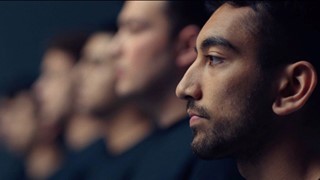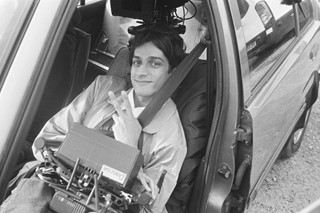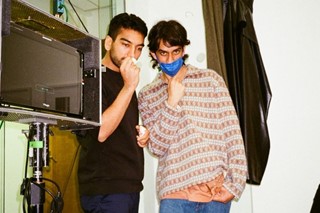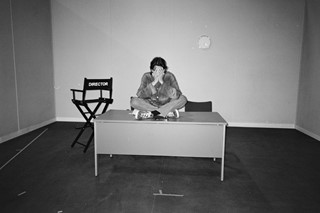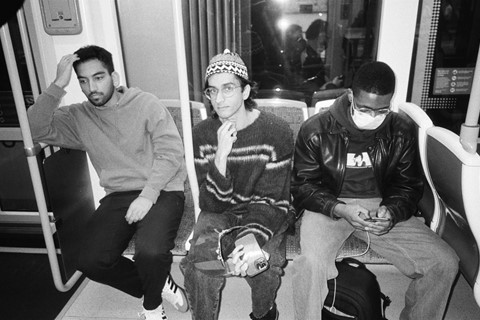Ahead of its UK premiere, filmmaker Naqqash Khalid and actor Nabhaan Rizwan discuss their haunting, maze-like exploration of identity, self and show business
Naqqash Khalid’s debut feature, In Camera, is a meticulously crafted labyrinth that starts from a simple premise: a struggling actor, fed up with playing the proverbial corpse in cheesy detective dramas, goes through a series of excruciating auditions which lead him to question his life choices and, ultimately, his own sanity.
Exploring the seemingly cutthroat world of the UK film industry through the lens of a young British-Asian performer, Khalid weaves a narrative that is both darkly satirical and deeply unsettling, leaving audience and protagonist alike trapped in a disorienting world where the lines between reality and performance blur. Aden, played with captivating intensity by Nabhaan Rizwan (Station Eleven), is our somewhat unreliable guide through this maze. We witness his descent from hopeful newcomer to disillusioned soul, battered by a relentless cycle of humiliating situations, all the way through to a semblance of success.
The film masterfully portrays the anxieties and frustrations inherent in the audition process, but also in everyday life in modern Britain. “It’s really just a polarising time just to exist in the world,” says Khalid, excited and nervous ahead of the film’s premiere in his hometown of Manchester as part of the inaugural MUBI FEST. “And I think in some way, every single person, regardless of anything, can identify with that sense of fracture and chaos.”
The film’s serpentine nature is emphasised by recurring motifs. Key scenes are revisited from different perspectives, offering new layers of meaning. Aden cycles through a series of identical audition rooms, highlighting the monotony of his pursuit. And mirrors play a significant role, serving as stark reminders of Aden’s struggle to see himself clearly – is he the person he portrays in auditions, or is there something more authentic beneath the surface? “You could get lost in the patterns,” says Rizwan of the experience, “because you’re making a pattern, while studying and critiquing [it] at the same time.”
The confusion is most evident in the film’s dreamlike sequences, where the line between acting and genuine emotion becomes indistinguishable. And not only for Aden but also for his flatmate, Bo (an excellent Rory Fleck Byrne), whose busy schedule as an underpaid and overworked junior doctor has him fantasising about vending machines in the countryside or bleeding hospitals. The latter scene is troubling but also beautiful and, in some ways, reflects the self-referential nature of the film. Khalid says they used 90 gallons of fake blood for the shoot, and Rory “felt like he was in the shower, and I actually wrote that monologue in the shower. I never told him that – I thought it was really interesting.”
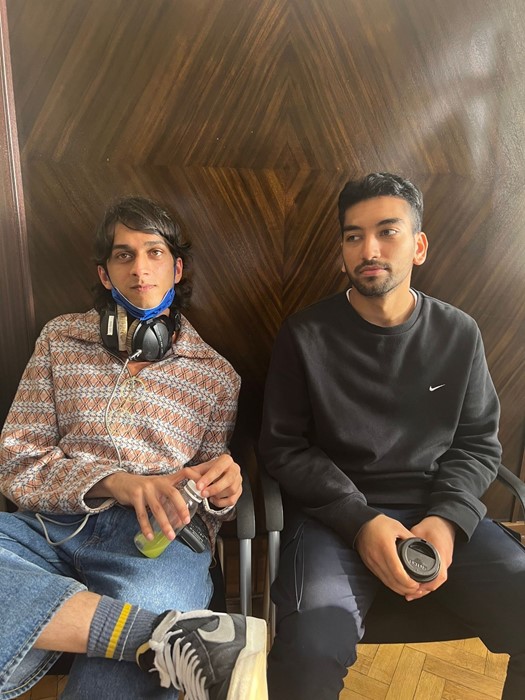
When we are introduced to a new flatmate, Conrad (Amir El-Masry, Limbo), he is almost the exact opposite of Aden, a self-assured and successful alter ego. Conrad tries to take Aden under his wing and spouts platitudes about it being “their time”, which goes against everything Aden has experienced, but slowly we see the actor adopt elements of his persona as he tries to turn his career around, to the point that his Bo even seems to confuse the two at one point.
But In Camera doesn’t simply satirise the insecurities that come with any line of work; it also challenges viewers to confront uncomfortable truths closer to home. If the film business is a system that thrives on exploiting vulnerabilities, Aden’s story is also a cautionary tale in a wider sense, a reflection of the constant pressure we face to conform to narrow expectations, not just for actors but for everyone living in this fractious, alienating world.
The film also tackles the challenges faced by actors of colour. Aden’s struggle to find roles that go beyond stereotypes speaks volumes about the lack of diversity within the industry, but Rizwan assures me that, thankfully, there aren’t really “20 brown men standing with no chairs; it’s not actually like that. But we wanted to create discomfort where we think it exists in the world, and so it’s symbolic and representative in that way.”
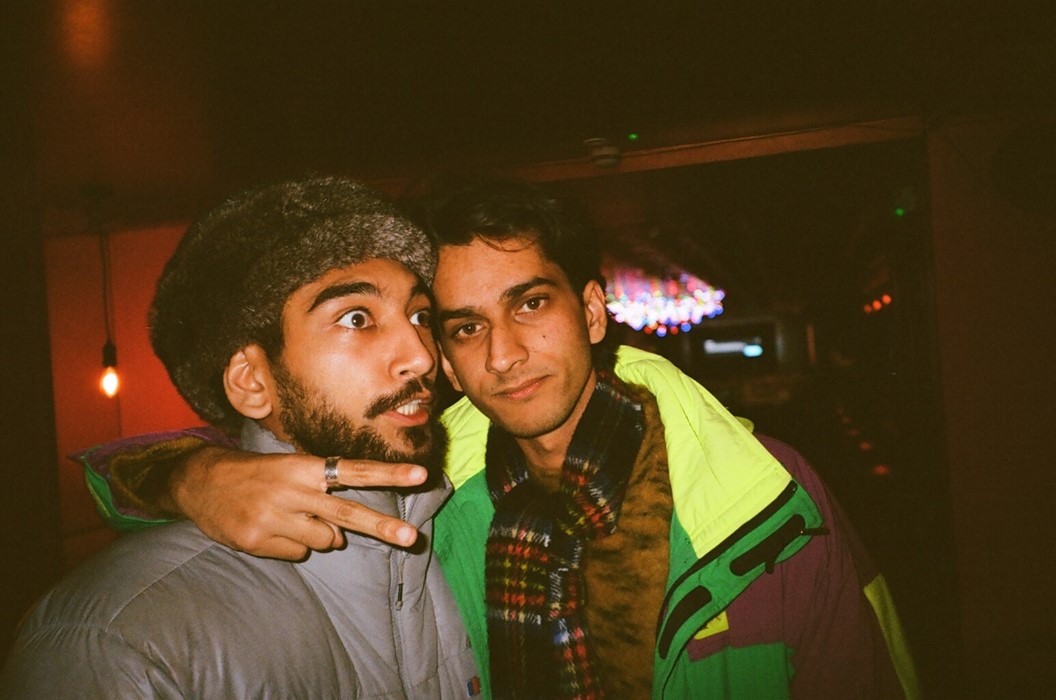
In the end, In Camera is not an easy film – its labyrinthine structure and dark humour may alienate some viewers. But for those willing to embrace its unsettling ambiguity, the film offers a thought-provoking exploration of identity and ambition. “People modulate themselves all the time in extreme ways, but also in really subtle ways, depending on who they’re interacting with and what the stakes are in that interaction,” says Rizwan. “We wanted to show how, in a sense, we all do that.” It’s a film that lingers long after the credits roll, prompting us to question the masks we might wear and the price of chasing a dream.
In Camera is screening at MUBI FEST at Aviva Studios in Manchester on July 13. Tickets are available here.
